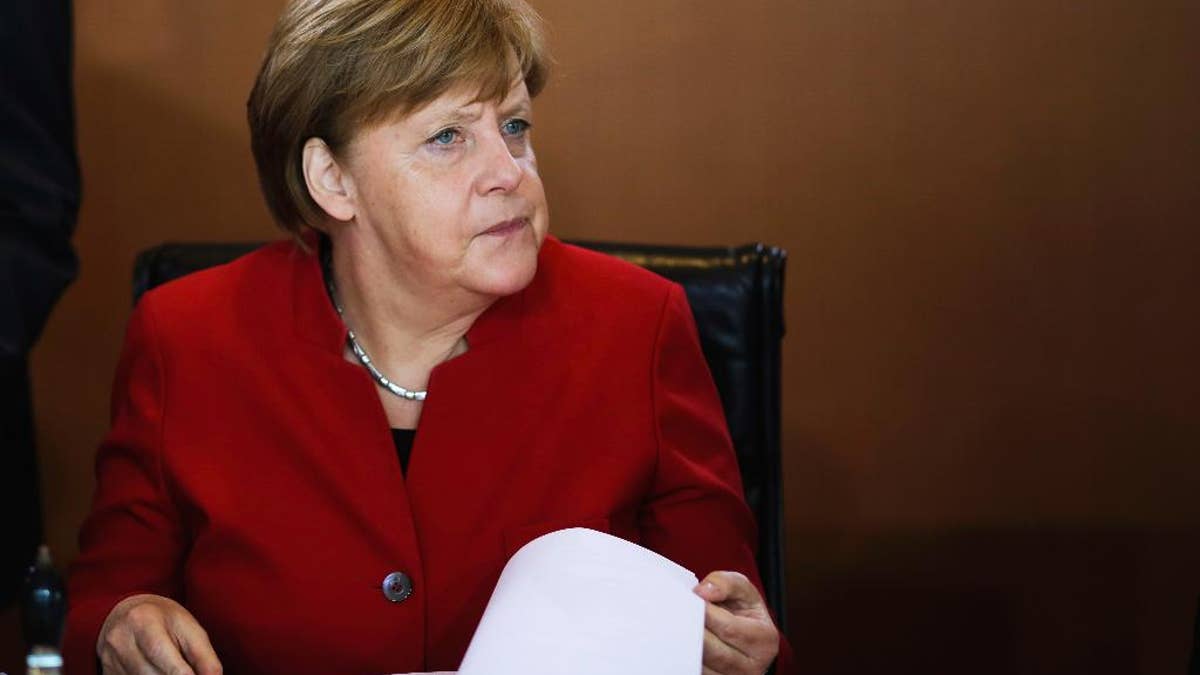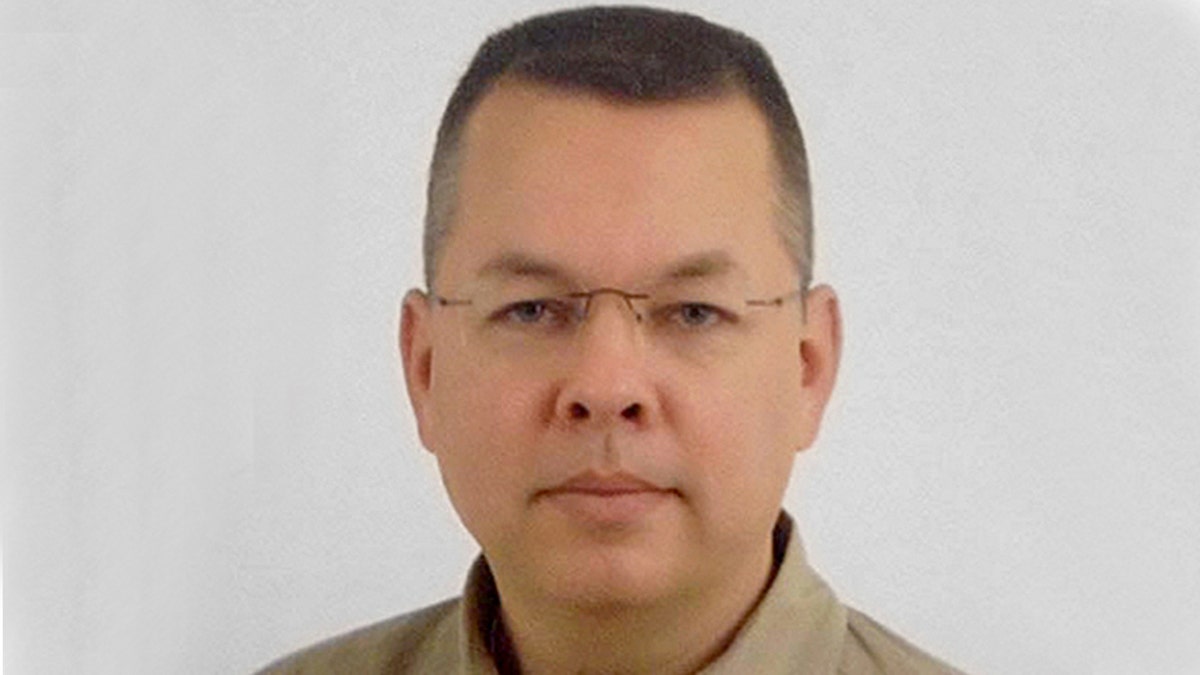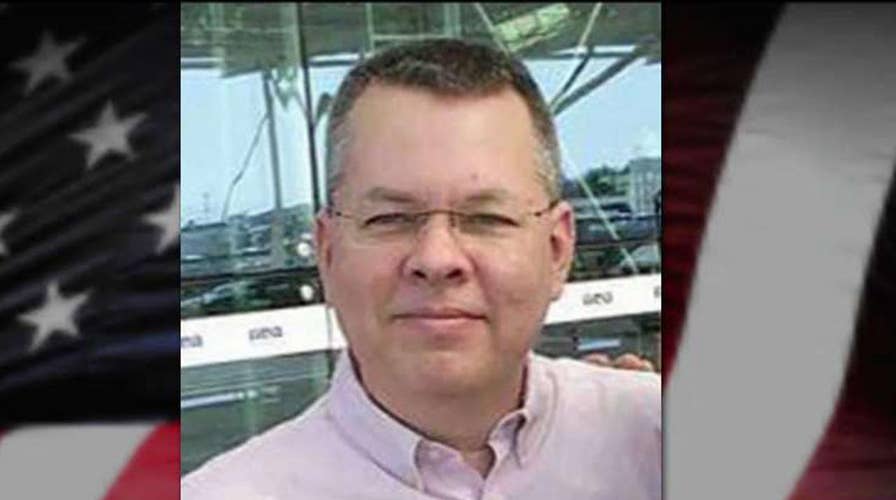As Turkish President Recep Tayyip Erdogan stepped up the pressure this week on the European Union about whether to admit it as a member, U.S. and German officials are growing more exasperated with a government that increasingly is arresting and detaining citizens from both nations for seemingly arbitrary reasons.
Relations between Turkey and Germany have been tense for months, with Turkey accusing Germany of harboring people with alleged links to last year’s failed coup against Erdogan as well as outlawed Kurdish militant groups.
Berlin has accused Turkey of backsliding on democratic values and is angered by the arrest of 12 German citizens in Turkey for what Berlin considers political reasons.
One of the detainees is German-Turkish journalist Deniz Yucel, who has been in detention for about 200 days.
At a business event in the city of Nuremberg recently, Chancellor Angela Merkel said it was unwise to continue speaking with Ankara about being in an EU customs union. She added that German already had changed its views of its relations with Turkey.
“We must react decisively,” Merkel said. “Given the latest events, perhaps it is necessary to rethink them ever further.”
U.S. officials also are concerned about the growing difficulty of gaining access to U.S. citizens who are arrested or detained in Turkey.
American pastor Andrew Brunson, 48, was detained in Turkey in October and then accused two months later of “membership in an armed terroristic organization." Turkish authorities then piled on new charges of espionage. Brunson’s lawyer told the Wall Street Journal the charges are trumped up.

German Chancellor Angela Merkel in May. (AP Photo/Markus Schreiber)
“State Department officials have and will continue to raise cases of U.S. citizen detentions directly with Turkish government officials at all levels, as appropriate,” said a State Department official to Fox News, who asked not to be named. “Since Mr. Brunson’s arrest, consular officers have visited him regularly, including our last visit on August 24 … We ask that Turkish officials consider releasing Mr. Brunson from custody subject to whatever judicial conditions or controls may be appropriate while his legal case is resolved, as it has done with other individuals under investigation.”
“As Secretary Tillerson has said, ‘The United States continues to advocate for the release of Pastor Andrew Brunson, who has been wrongfully imprisoned in Turkey.’”
More broadly, the official said, the U.S. government is concerned about Turkey’s treatment of U.S. citizens.
“Delays or denial of consular access to U.S. citizens detained or arrested by security forces, some of whom also possess Turkish citizenship, continue,” the official said. “In accordance with the Vienna Convention on Consular Relations, the United States has a legal right to access U.S. citizens who are detained in Turkey, and who do not also possess Turkish citizenship.”

Pastor Andrew Brunson.
Beyond this, Turkey has become one of the riskiest nations in the world for journalists, according to the Committee to Protect Journalists.
CPJ said to Fox News that as of the end of 2016, 81 journalists were in Turkish jails for their reporting.
“Turkey is the world’s biggest prison for journalists,” said Robert Mahoney, CPJ’s deputy executive director. “We believe 81 is a conservative figure. We include people in jail directly for their work in journalism. The thing to remember with Turkey is that the president cannot stand criticism. Journalists are being jailed for what you or I would consider fair comments and criticism, fact-based opinions as well as reporting, all which the government does not like.”
Many people detained have been accused of being part of a failed coup against Erdogan last year. Critics say that Erdogan, who already had showed an intolerance for dissent, used the coup attempt to crack down harder on critics.
“We’re trying to establish what they are charged with,” said Germany’s Foreign Ministry spokeswoman Maria Adebahr at a press conference, according to Reuters. “We must assume that it’s a political charge, suspicion of terrorism, as with the others.”
Mahoney said that Turkey’s draconian moves against perceived enemies “is very concerning.”
“They have portrayed themselves as a moderate [presence] in the region,” he said. “But there has been a closing of freedom of expression and control of information.”
The Associated Press contributed to this report.






















